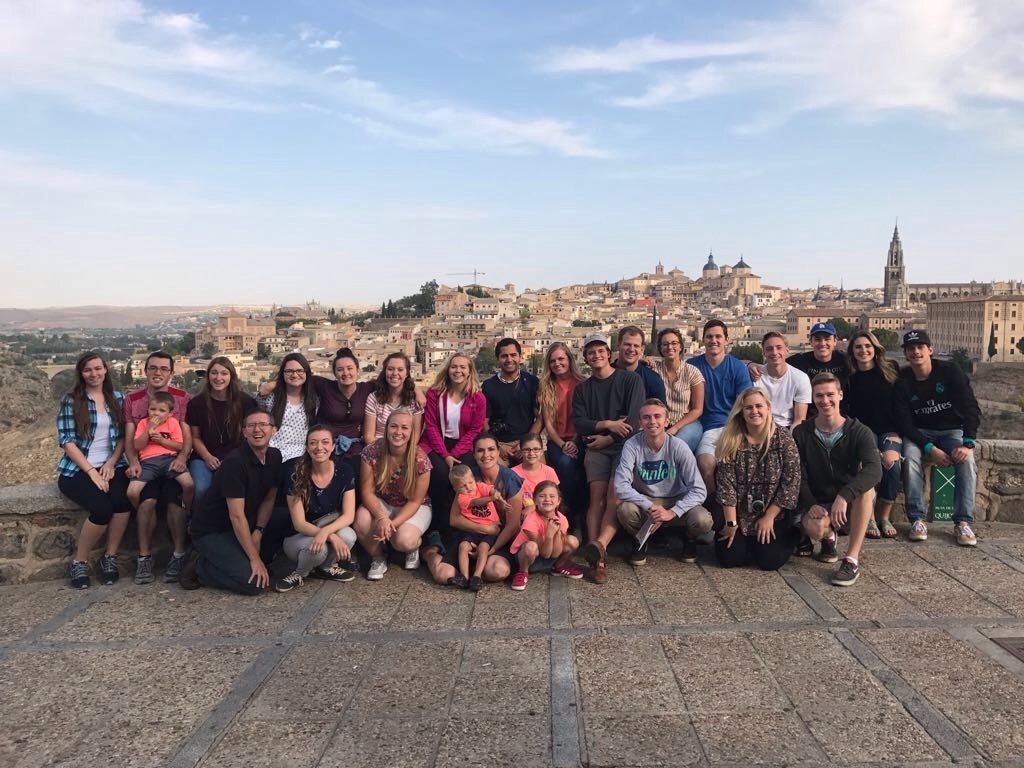
Twenty-two BYU students abroad in Spain traveled to Portugal in mid-November in lieu of a trip to Barcelona, which was cancelled after the Oct. 1 Catalan independence referendum.
The Kennedy Center has directed all students in Spain to not enter the Catalan region as ongoing political developments have resulted in riots and protests.
BYU students participating in the Spanish experience live in Alcalá de Henares, a city in central Spain — 300 miles west of Barcelona. They have not seen the political demonstrations. However, there is much more at stake. Catalonia’s potential independence from Spain could cause instability within the European Union, according to BYU Spanish and Portuguese professor John Rosenberg.
“The situation is a concern for me because if you look at Europe since World War II, the last 60 years has been a period of unprecedented peace in Europe,” Rosenberg said. “That peace has been forged from the creation of transnational identities and from a resistance to nationalisms.”
The Catalan independence movement supporting secession from Spain is larger than ever before, according to Rosenberg. Catalan independence could initiate independence movements among the other autonomous communities within Spain as well as other countries in the European Union, such as Austria, Germany and Hungary.
BYU student Whitney Snow is currently abroad in Spain through the university. She has not witnessed any of the protests or violence in person, but she feels like she hasn’t experienced much support for the independence movement in Alcalá.

“Personally, I’ve seen more opposition to the movement,” Snow said. “The majority of the people I’m talking to on a regular basis grew up under (Francisco) Franco and have a strong sense of national pride. They really can’t imagine why anyone would want to secede from Spain.”
Independence supporters argue Catalonia would be better off without the control of the Spanish government because it is the most prosperous region in the country. What the region tends to pay in national taxes outweighs the benefits the community receives, according to Rosenberg.
However, the entirety of Spain makes up most of Catalonia’s consumer base. If the region were to secede, tense relations could prove to be damaging to their economy. The European Union has declared it will not recognize Catalonia as independent, cutting off other government support to the region.
Supporters also argue Catalonia deserves a renewal of the independence it claims the region experienced in medieval history, which is a “mythic political identity,” according to Rosenberg.
The autonomous regions of Spain trace back to kingdoms during medieval times. Catalonia, however, was never a kingdom; it was a county in the kingdom of Aragon. King Ferdinand ruled over Aragon, including Barcelona. The 1469 marriage of King Ferdinand of Aragon and Queen Isabella of Castille resulted in the political unity of modern Spain as the kingdoms came together.
Rosenberg said Catalonia’s contentious relationship with the central government began during the War of Spanish Succession, when the region supported Austria in claiming the Spanish throne. The Bourbons, a French royal power, won the war and punished Catalonia for its lack of support throughout. Years of post-war Catalan rebellion against the central government contributes to today’s political issues.
Kennedy Center Director of Study Abroad Programs Lynn Elliott does not expect the political climate in Spain to threaten BYU students studying there.
“The only way we’d be concerned about (the political tension) is if it were to spill over and affect our students who are in Spain, which we would watch,” Elliott said. “If it looked like they would be unsafe or there would be problems with them getting out, we would relocate the students or we would just temporarily cancel the program until things calm down.”
Elliott said there is a spring semester study abroad program that focuses on national parks in Europe, including parks in the Pyrenees along the border of Catalonia. While it’s possible tensions could intensify and alter these plans, any changes are unlikely as of right now.
Rosenberg does believe the political situation between Spain and Catalonia will be resolved temporarily, but there is much unknown about the long-term future of the conflict. He said there is still much uniqueness to be celebrated in the cultures of the autonomous regions of Spain, despite the political tension.
“One of the things that makes Spain really interesting is that it is a quilt with many pieces of fabric sewn together and that have hung together for 500 years or more,” Rosenberg said. “In my view, the whole is beautiful. But it’s beautiful because each individual patch of that quilt has traditional richness, and that diversity merits celebration and protection.”
The timeline below shows a history of the Catalan independence movement in the 20th century and recent events leading up to the declaration. (By Eleanor Cain)




